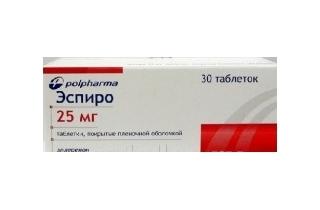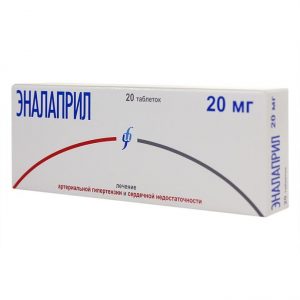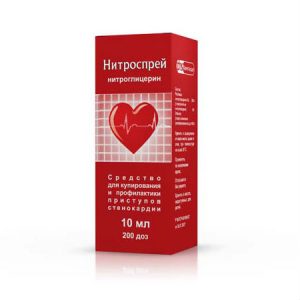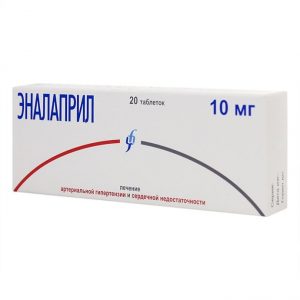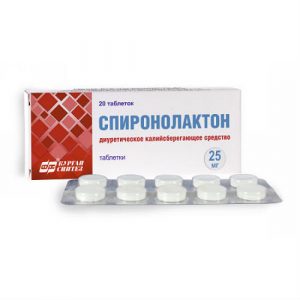Description
Release form
Tablets.
Packing
30 pcs.
Pharmacological action of
Pharmacological action of
Eplerenone has relative selectivity for mineralocorticoid receptors in humans compared with glucocorticoid, progesterone and androgen receptors, blocks their binding to aldosterone, a key hormone of the renin-angiotensin-angiotensin-angiotensin-receptor system, blood pressure and the pathogenesis of cardiovascular disease.
Eplerenone causes a steady increase in plasma renin and serum aldosterone levels. Subsequently, renin secretion is suppressed by aldosterone via a feedback mechanism. At the same time, an increase in renin activity or the level of circulating aldosterone does not affect the effects of eplerenone.
Pharmacokinetics
Absorption and distribution.
The absolute bioavailability of eplerenone is not known. The maximum concentration in blood plasma is reached approximately 2 hours after application. The maximum plasma concentration (Cmax) and the area under the concentration curve (AUC) are proportional to the dose in the range of 10-100 mg and less proportional when used in doses over 100 mg. Equilibrium concentration is reached within 2 days. Eating does not affect absorption.
The binding of eplerenone to plasma proteins is about 50%, mainly due to binding to alpha 1-acid glycoproteins. The apparent volume of distribution in equilibrium is 50 (± 7) l. Eplerenone does not have selective binding to red blood cells.
Metabolism and excretion.
Eplerenone metabolism is carried out under the influence of the cytochrome P-450 isoenzyme CYP3A4. Active metabolites of eplerenone in human blood plasma are not identified.
Less than 5% of the dose of eplerenone is excreted unchanged in urine and feces. After a single oral dose of a drug labeled with a radioactive isotope, about 32% of the dose is excreted in feces and about 67% in urine. The elimination half-life in the phase of elimination of eplerenone is about 3-5 hours. Plasma clearance is about 10 l / h.
Special patient groups.
Age, gender and race:
The pharmacokinetics of eplerenone in men and women did not differ significantly. In elderly people, the equilibrium indices of Cmax (22%) and AUC (45%) were increased compared to young patients (18-45 years old). The equilibrium values of Cmax and AUC in individuals of the Negroid race were reduced by 19 and 26%, respectively.
Renal failure:
The pharmacokinetics of eplerenone have been studied in patients with renal failure of varying severity and in patients on hemodialysis. Compared to healthy patients, the equilibrium AUC and Cmax indices increased by 38 and 24%, respectively, in patients with severe renal failure, and decreased by 26 and 3%, respectively, in patients undergoing hemodialysis. No correlation was found between eplerenone clearance from blood plasma and creatinine clearance. Eplerenone is not removed by hemodialysis.
liver failure:
Eplerenone has not been studied in patients with severe hepatic insufficiency, therefore its use in this group of patients is contraindicated.
Heart failure:
Eplerenone clearance in patients with heart failure is similar to that in healthy individuals.
Indications
– as an adjunct to standard therapy with beta-blockers to reduce the risk of mortality and cardiovascular morbidity in patients with a stable clinical condition with left ventricular dysfunction (LVEF [left ventricular ejection fraction] 40% ):
– to reduce the risk of mortality and cardiovascular morbidity in patients with clinical manifestations of heart failure after a recent myocardial infarction.
Contraindications
– hypersensitivity to eplerenone or any excipient of the drug Espiro
– serum potassium level before treatment> 5, 0 mmol / l
– moderate and severe renal failure (creatinine clearance <30 ml / min) – severe liver failure (Child-Pugh class C) – simultaneous use of potassium-sparing diuretics, potassium preparations or potent CYP3A4 inhibitors ( ., itraconazole, ketoconazole, ritonavir, nelfinavir, clarithromycin, telithromycin and nefazodone) – in combination with angiotensin converting enzyme inhibitors (ACE) and angiotensin II receptor antagonists (APAII) lactation period. Composition 1 tablet contains: Active ingredient: eplerenone 25 mg Excipients: lactose monohydrate, microcrystalline cellulose, hypromellose, sodium lauryl sulfate, croscarmellose sodium, magnesium stearate, shell composition Opadry yellow 33G32578, including: hypromellose, titanium dioxide (E171), lactose monohydrate, macrogol, triacetin, iron (III) oxide yellow (E172). Side effects Hyperkalemia, dizziness, syncope, hypotension, cough, diarrhea, nausea, constipation, rash, itching, impaired renal function. Infrequently> 1/1000 – pyelonephritis, eosinophilia, hypothyroidism, hyponatremia, dehydration, hypercholesterolemia, hypertriglyceridemia, insomnia, headache, hypesthesia, myocardial infarction, left ventricular heart failure, fibrillation, atrial fibrillation orthostatic hypotension, pharyngitis, vomiting, flatulence, sweating, back pain, painful cramps of the calf muscles, cholecystitis, gynecomastia, asthenia, malaise, increased levels of urea nitrogen, creatinine, blood glucose, decreased levels of the epidermal growth factor receptor.
Frequency is not known – angioedema.
Terms of delivery from
pharmacies Prescription
dosage form
tablets
Polysorb MP, Poland
